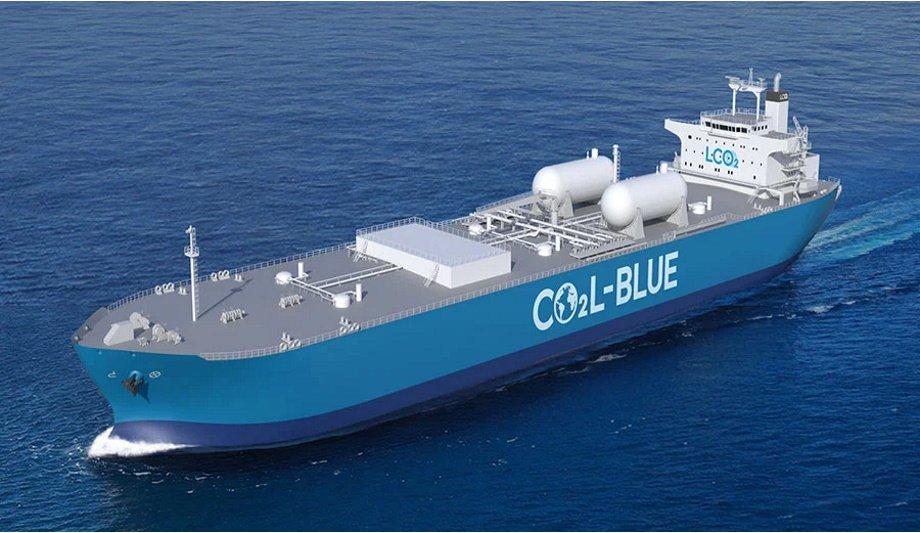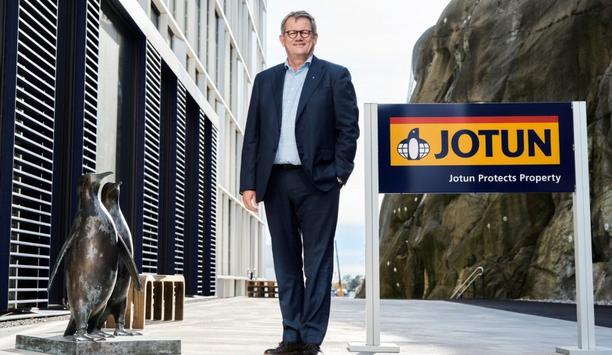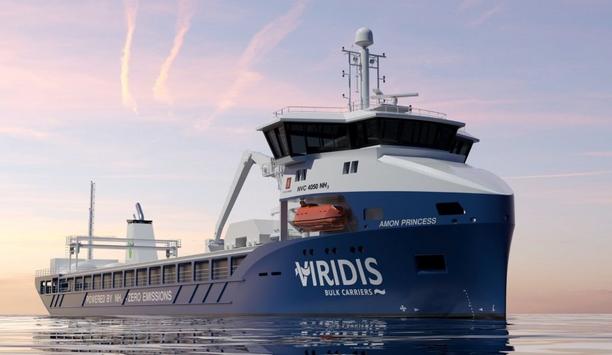Mitsubishi Shipbuilding, a part of Mitsubishi Heavy Industries (MHI) Group and Nihon Shipyard Co., Ltd., a Tokyo-based joint venture for ship design and sales between Imabari Shipbuilding Co., Ltd. and Japan Marine United Corporation have started joint study for the development of an ocean-going liquefied CO2 (LCO2) carrier.
Nihon Shipyard is pursuing this project with the aim of completing construction of the vessel from 2027 onwards.
Demand for LCO2 carriers to grow in the future
Demand for LCO2 carriers is expected to grow in the future as a means to transport large volumes of CO2 safely for CCS (Carbon dioxide Capture and Storage) projects, in which captured CO2 is stably stored underground.
Following the lead of the EU region, it is expected that CCS projects in Asia will be accelerated by the promotion of national governments, it will be essential to establish a shipbuilding framework in Japan to meet the demand for LCO2 carriers.
Mitsubishi Shipbuilding and Nihon Shipyard Launch Joint Study
MHI Group is pursuing strategic measures to strengthen its business for the energy transition
This project will take advantage of the knowledge and advanced gas handling technology that Mitsubishi Shipbuilding has acquired in designing and constructing liquefied gas carriers (liquefied petroleum gas (LPG) and liquefied natural gas (LNG) carriers), as well as the wealth of shipbuilding experience for various type of vessels and advanced technology capabilities that Nihon Shipyard has accumulated over the years, as strengths that can be mutually supplemented.
MHI Group is pursuing strategic measures to strengthen its business for the energy transition. For its role in this initiative, in addition to conventional shipbuilding centered on manufacturing, Mitsubishi Shipbuilding aims to utilise its marine engineering technologies rooted in shipbuilding to contribute to the development of the maritime industry in Japan and around the world.
Development and commercialisation of LCO2 shipping
This project is a part of that effort. Through collaboration with multiple Japanese shipping companies and domestic/overseas energy companies, along with the construction of demonstration ship for transport of LCO2, Mitsubishi Shipbuilding is actively pursuing the development of LCO2 carriers and commercialisation of LCO2 shipping.
Nihon Shipyard, in anticipation of future regulations restricting CO2 emissions, is proactively working toward the commercialisation of LNG and ammonia fuelled ships. As its next initiative, the company is considering the potential for LCO2 carriers, aiming to further solidify its leading position in the industry.
LCO2 carriers to establish a CCS value chain
Going forward, Mitsubishi Shipbuilding and Nihon Shipyard will provide the world with the LCO2 carriers necessary to establish a CCS value chain, and contribute to the realisation of a carbon neutral world.










